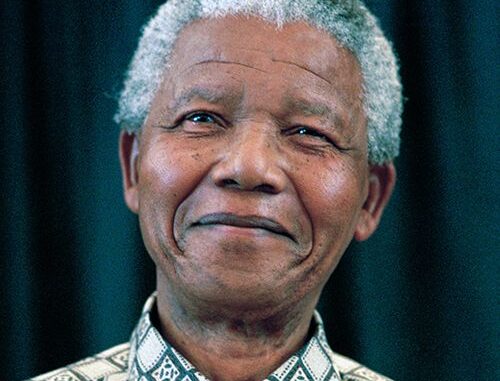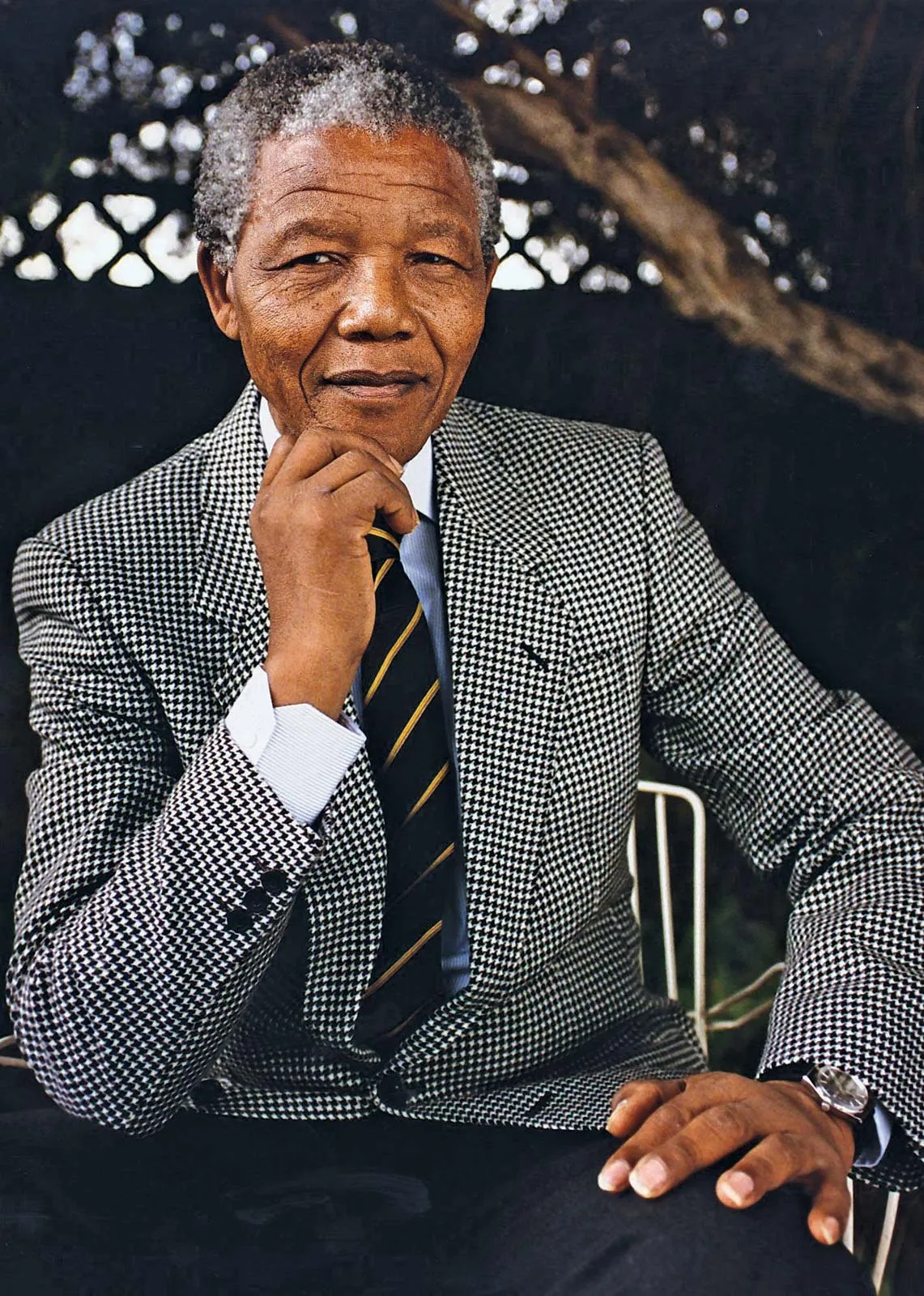
Nelson Mandela Biography
According to BioBriefs, Nelson Mandela is one of the most iconic figures in modern history, known for his pivotal role in dismantling apartheid in South Africa and promoting peace, justice, and reconciliation. His extraordinary life continues to inspire millions worldwide.
In this comprehensive biography, we delve into the full details of his age, early life, education, career, family, and net worth

Nelson Mandela Wiki Profile
Full Name: Nelson Rolihlahla Mandela
Date of Birth: July 18, 1918
Place of Birth: Mvezo, Umtata, Eastern Cape, South Africa
Date of Death: December 5, 2013 (aged 95)
Occupation: Anti-apartheid revolutionary, Political Leader, Philanthropist
State of Origin: Eastern Cape, South Africa
Net Worth: Estimated at $10 million at the time of his death
Nelson Mandela Early Life and Background
Nelson Rolihlahla Mandela was born on July 18, 1918, in the small village of Mvezo in Umtata, part of South Africa’s Eastern Cape. He hailed from the Thembu royal family, which gave him a strong cultural and leadership heritage. His father, Gadla Henry Mphakanyiswa, was the chief of the village and a counselor to the Thembu king. His mother, Nosekeni Fanny, was one of the four wives of Gadla, and she raised Mandela in the rural setting of Qunu.
The name “Rolihlahla” in the Xhosa language means “pulling the branch of a tree,” or metaphorically, “troublemaker.” Mandela later became known by his English name, Nelson, which was given to him by his teacher on his first day of school.
Nelson Mandela Education
Mandela’s formal education began at a local missionary school, where his teacher gave him the name “Nelson.” He went on to attend the prestigious Clarkebury Boarding Institute and later, the Healdtown Methodist College. In 1939, Mandela enrolled at the University of Fort Hare, the only Western-style institution of higher learning available to black South Africans at the time. However, he was expelled for joining a student protest, showcasing his early commitment to justice and equality.
Determined to complete his education, Mandela moved to Johannesburg, where he studied via correspondence at the University of South Africa (UNISA) and earned a Bachelor of Arts degree. He later pursued a law degree at the University of the Witwatersrand.
Nelson Mandela Career and Anti-Apartheid Activism
Nelson Mandela’s career as a revolutionary leader began when he joined the African National Congress (ANC) in 1943. His involvement in the fight against apartheid grew, as he helped form the ANC Youth League. In 1948, the apartheid system was formalized by the South African government, enforcing racial segregation and discrimination. Mandela’s determination to dismantle this unjust system became a lifelong pursuit.
He co-founded the ANC’s Defiance Campaign in 1952, where he advocated for non-violent resistance. As a result, Mandela became a national figure, gaining both support and scrutiny from the apartheid government. In 1961, after peaceful protests were met with violence, he co-founded the Umkhonto we Sizwe, the ANC’s armed wing, signaling a shift towards armed resistance.
In 1962, Mandela was arrested and sentenced to life imprisonment for sabotage and other charges during the Rivonia Trial in 1964. He spent 27 years in prison, mainly on Robben Island, enduring harsh conditions but refusing to give up on his ideals.
Presidency and Legacy
In 1990, after international pressure and growing unrest, Mandela was released from prison. In 1993, he was awarded the Nobel Peace Prize alongside then-president F.W. de Klerk for their efforts to end apartheid peacefully.
In 1994, Mandela became the first black president of South Africa after the country’s first democratic elections. His presidency (1994-1999) focused on healing the deep racial divisions through the Truth and Reconciliation Commission and ensuring equal rights for all South Africans. His term was characterized by efforts to combat poverty, inequality, and racial tension.
Mandela stepped down after one term, demonstrating his commitment to democratic principles and avoiding the authoritarianism often seen in other African leaders.
Nelson Mandela Relationships, Wife, and Children
Nelson Mandela’s personal life was as eventful as his public career. He married three times and had six children.
- Evelyn Ntoko Mase (1944-1958): His first marriage was to Evelyn Mase, a nurse, in 1944. The couple had four children together:
- Madiba Thembekile Mandela
- Makgatho Mandela
- Makaziwe Mandela
- Maki Mandela
- Winnie Madikizela-Mandela (1958-1996): In 1958, Mandela married Winnie Madikizela, a social worker who became a prominent anti-apartheid activist. They had two daughters, Zenani Mandela and Zindzi Mandela. The couple endured long separations during Mandela’s imprisonment, and although their relationship was strained after his release, Winnie played a significant role in his political life. They divorced in 1996.
- Graça Machel (1998-2013): In 1998, Mandela married Graça Machel, the widow of Mozambican President Samora Machel. Graça and Mandela remained together until his death in 2013.

Nelson Mandela Parents and Family Background
- Father: Gadla Henry Mphakanyiswa Mandela, a local chief and counselor to the Thembu royal family. He passed away when Nelson was nine, and Mandela was taken under the care of the regent, Chief Jongintaba Dalindyebo, who became a father figure to him.
- Mother: Nosekeni Fanny, who was devoted to her family and instilled strong values in Mandela during his upbringing.
Nelson Mandela’s Death and Legacy
Nelson Mandela passed away on December 5, 2013, at the age of 95, at his home in Johannesburg, South Africa. He had been suffering from a prolonged respiratory infection, a condition likely exacerbated by the harsh conditions he endured during his 27 years of imprisonment. His death marked the end of an era, but his legacy lives on through the millions who continue to draw inspiration from his life’s work.
Mandela’s passing triggered a global outpouring of grief, with world leaders, citizens, and notable figures from every continent offering their condolences and tributes. South Africa held a national mourning period and organized a state funeral in his honor, attended by leaders such as Barack Obama, David Cameron, and Raúl Castro. His funeral took place in his ancestral village of Qunu, where he was buried.
Even in death, Nelson Mandela’s influence continues to shape global politics, race relations, and human rights advocacy. His story of resilience, peace, and justice remains a guiding light for those who seek a better world, making his life and legacy truly evergreen.
Nelson Mandela Net Worth
At the time of his death in 2013, Nelson Mandela’s net worth was estimated to be around $10 million. Much of his wealth came from the various memoirs he published, particularly his famous autobiography, “Long Walk to Freedom.” He also earned income from speeches, royalties, and his work as a global humanitarian. However, Mandela lived modestly and dedicated much of his fortune to philanthropic causes through the Nelson Mandela Foundation, which continues to champion his ideals of equality, justice, and human rights.
Conclusion
Nelson Mandela’s life is a testament to the power of resilience, leadership, and sacrifice. His contributions to the fight against apartheid, his leadership as South Africa’s first black president, and his unwavering commitment to reconciliation have left an indelible mark on history. His legacy as a global symbol of peace and justice continues to inspire generations, ensuring that his story remains relevant and evergreen.

Leave a Reply